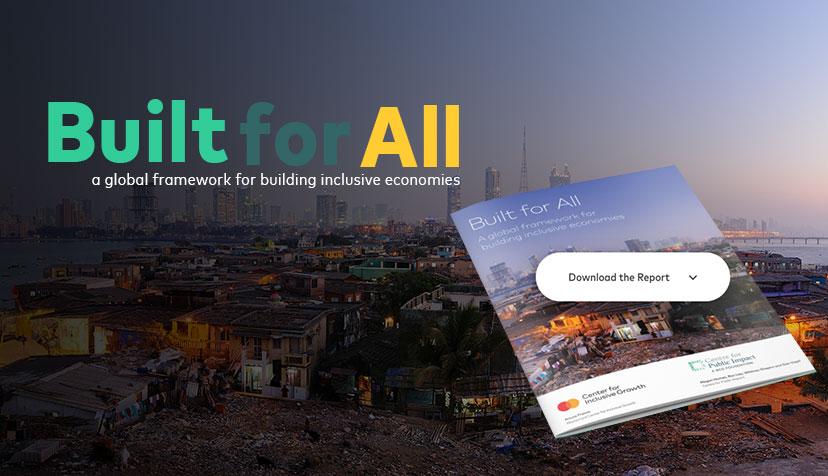Built for All: A Global Framework for Building Inclusive Economies

The Mastercard Center for Inclusive Growth
Our global economic system has enabled billions to lift themselves from poverty. It fueled material success and sustained improvements in health, literacy, and nutrition. As a result, we have seen rising living standards, significant advances in technology, soaring innovation and strong social progress.
However, the benefits of economic growth were not always fairly or broadly distributed, and the models of our past successes might not be those that could lead us into a new era of sustained and shared prosperity.
The dual crises of COVID-19 and racial injustice have created a moment for reflection and reset, as countries and industries start to rebuild. There is an opportunity – and an imperative – to reimagine our existing economic models to address worsening inequalities and exclusion. Still, there is surprisingly little consensus on how to define, measure, and create the conditions for an inclusive economy.
The Mastercard Center for Inclusive Growth and the Centre for Public Impact led a collaborative exercise to arrive at an inclusive economy framework – a “north star” to guide and stimulate deliberation – informed by an extensive literature review and interviews with leading thinkers. This framework builds on an exceptional list of previous efforts and diverse perspectives from our expert panel.
Across each pillar, the expert panel helped us outline a set of outcomes we all would expect in a truly inclusive economy (listed in the following table). They have also identified broad actions that businesses, governments, and the civic sector can take to drive change.
Designing an inclusive economy requires giving voice to individuals and places that have been insufficiently included up to now. Moreover, tackling a challenge as complex as reimagining how our economic systems work could require new approaches to problem-solving, new institutions, and a new level of collaboration across sectors. Specific solutions and prioritization of private and public resources could look different across geographies and cultures.
Built for All was devised as an actionable framework. It envisages businesses, government, and civic sectors coming together and explores a common set of actions that could help global economies support a future of sustained prosperity, equal participation, and responsible stewardship. We are eager to collaborate with leaders from all sectors to build a more inclusive global future.

